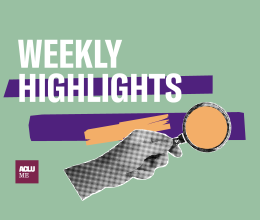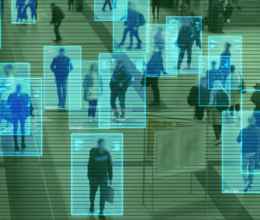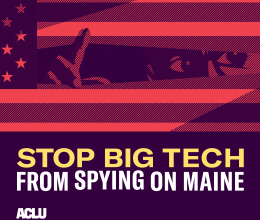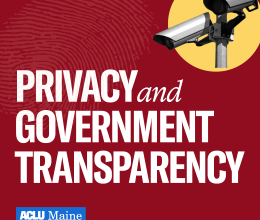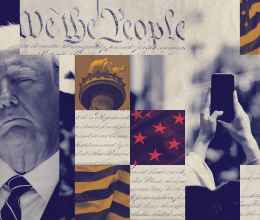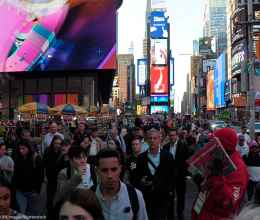AUGUSTA – Maine is on its way to becoming the first state in the nation to regulate the use of facial recognition technology by public officials. The bill, LD 1585, received unanimous and bipartisan support from the nine members present at the Criminal Justice and Public Safety Committee’s work session yesterday.
LD 1585, sponsored by Rep. Grayson Lookner (Portland), strictly regulates the use of facial recognition technology by law enforcement and other public officials. It allows law enforcement officers to use facial recognition only in investigating the most serious crimes, such as murder and rape. Additionally, it requires law enforcement officers to justify a facial recognition request with probable cause and limits them to asking the Bureau of Motor Vehicles (BMV) or the FBI to run the search. The BMV will be required to collect data on the search requests it receives from law enforcement. A facial recognition match by itself is not probable cause for law enforcement officers to arrest or search a person.
“LD 1585 creates clear boundaries on how the government can use facial recognition technology, and it carefully defines how law enforcement can use the technology in investigations,” said Rep. Lookner. “I’m proud of this bill and the process it went through, which included bringing law enforcement partners to the table.”
The bill will move onto the House for a floor vote.
The ACLU of Maine has long called for regulating the use of face surveillance technology because it poses an unprecedented threat to civil liberties and an open democratic society.
“Facial recognition technologies give government actors the opportunity of surveilling us constantly and without suspicion, violating core rights of privacy, association and expression,” said Michael Kebede, policy counsel at the ACLU of Maine. “This bill is an important step in maintaining democratic control over the technology, instead of letting the technology and its unregulated use run roughshod over our rights.”
Although facial recognition technology is pervasive, there is little oversight and regulation over how government and private actors use it. A study by the Center on Privacy and Technology at Georgetown Law found that half of American adults are in a law enforcement face recognition database, and one in four law enforcement agencies have access to face recognition technology, the use of which is almost completely unregulated.

